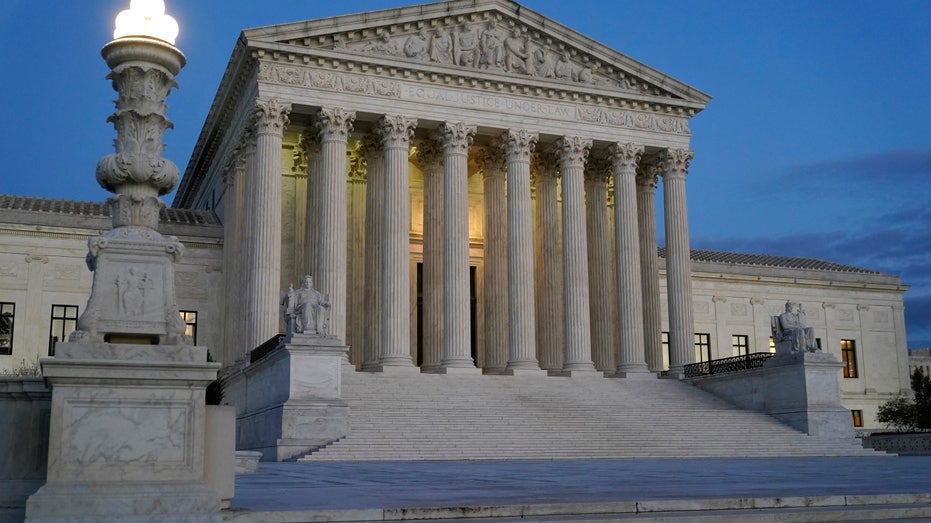Supreme Court agrees to hear challenges to bump stock ban, New York's financial 'blacklisting' of NRA
The Supreme Court agreed to hear arguments in two major cases involving gun rights related to 'bump stocks' and First Amendment liberties for the National Rifle Association.

The Supreme Court on Friday agree to hear two appeals involving gun and free speech rights: one dealing with "bump stocks" accessories for high-powered guns, and a free speech challenge by the National Rifle Association (NRA).
The high court will hear arguments in the case National Rifle Association of America v. Vullo, which questions whether a government regulator threatening regulated entities with adverse regulatory actions if they do business with a controversial speaker, allegedly because of the government's own hostility to the speaker's viewpoint, violates the First Amendment.
The former Superintendent of the New York State Department of Financial Services (DFS), Maria T. Vullo, at the behest of former New York Governor Andrew Cuomo, allegedly wielded DFS's regulatory power to financially blacklist the NRA – coercing banks and insurers to cut ties with the association, in an effort, the group says, to suppress its speech.
The lawsuit alleges that Vullo made "backroom threats" against regulated firms, accompanied by offers of leniency on unrelated infractions if regulated entities would agree to blacklist the NRA.
BIDEN URGES BAN ON ASSAULT WEAPONS AFTER ‘SENSELESS’ LEWISTON, MAINE, MASS SHOOTING
A federal appeals court dismissed the gun rights group's lawsuit, claiming that DFS suppressed its speech by pressuring banks and insurers to stop doing business with it.
"This is a historic step forward for the NRA, its millions of members, and all who believe in the freedom of speech," said NRA CEO & EVP Wayne LaPierre. "The NRA’s fight continues – this time in the highest court in the land. At a time when free speech is under attack as never before, we believe the Supreme Court will send a message to government officials that they cannot use intimidation tactics to silence those with whom they disagree."
The second case, Garland v. Cargill, presents the questions of whether a bump stock device is a "machine gun" as defined in federal law because it is designed and intended for use in converting a rifle into a weapon that fires "automatically more than one shot ... by a single function of the trigger."
In the wake of a 2017 mass shooting in Las Vegas that left 60 people dead and 500 more wounded, the Bureau of Alcohol, Tobacco, Firearms and Explosives (ATF) issued an interpretive rule concluding that bump stocks are machine guns.
A bump stock is an attachment that allows a semi-automatic rifle to mimic a fully automatic weapon's "cyclic firing rate to mimic nearly continuous automatic fire," according to ATF.
SENATE PASSES KENNEDY AMENDMENT PROTECTING VETERANS' SECOND AMENDMENT RIGHTS
Semi-automatic rifles with bump stocks could fire hundreds of rounds per minute, according to experts.
They were originally created to make it easier for people with disabilities to fire a gun. The device essentially replaces the gun's stock and pistol grip and causes the weapon to buck back and forth, repeatedly "bumping" the trigger against the shooter's finger.
Michael Cargill, Owner of Central Texas Gun Works, sued the government after he was forced to surrender several bump stocks under the ATF's rule.
SUPREME COURT KEEPS MISSOURI LAW ON HOLD THAT TARGETS FEDERAL GUN RESTRICTIONS
Cargill argued in his petition that the Supreme Court should take up the case because the question presented "has sharply divided the federal courts of appeals"
Three appeals courts agree with ATF’s pre-2018 position that non-mechanical bump stocks are not "machinegun[s]," while two other appeals courts agree with ATF’s present-day interpretation.
The New Civil Liberties Alliance (NCLA) is arguing the case on behalf of Cargill.
Mark Chenoweth, NCLA president and general counsel, said "this is not a case about gun rights. It is a case about administrative power."
"Congress never gave ATF the power to rewrite federal criminal statutes pertaining to machine guns—nor could it. Writing federal criminal laws is the sole preserve of Congress, and the Trump and Biden Administrations committed grievous constitutional error by trying to ban bump stocks without involving Congress. We are confident the U.S. Supreme Court will right this wrong for Michael Cargill and all Americans," he said.
Oral argument dates for both cases will be held next year, with decisions on the cases expected in June.
Fox News Digital's Chris Pandolfo and Fox News' Bill Mears and Shannon Bream contributed to this report.



